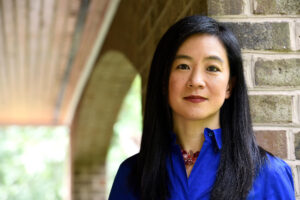
Survey from SNF Agora Institute at Johns Hopkins and Public Agenda Pinpoint Distinct Divides Within Republican Party
A new study from the SNF Agora Institute and Public Agenda finds that Americans are deeply concerned about the state of U.S. democracy and that growing divisions within the Republican Party deepen partisan divides over how the Constitution should guide presidential authority and the balance of power.
The report draws from a national survey of 4,500 Americans, earlier polling, and three focus groups with Republican participants. It builds on prior SNF Agora research documenting Republican disagreement about the legitimacy of the 2020 election. It shows that these differences now extend to views of presidential power, constitutional limits, elections, and trust in government.
The research identifies three distinct groups within the Republican Party:
- Trump-first Republicans (29 percent) support broad presidential authority, including bypassing Congress to achieve policy goals. A majority also supports allowing Donald Trump to run for a third term.
- Constitution-first Republicans (34 percent) prioritize checks and balances, limited presidential authority, and a clear legislative role for Congress. Most voted for Trump but oppose changing the Constitution to permit a third term.
- Party-first Republicans (36 percent) are less engaged in political discussion and express uncertainty about the scope of presidential powers.
“Americans share deep concern for our democracy, but we do not all have the same reasons,” said Andrew Seligsohn, president of Public Agenda. “Republicans in particular are divided between those who support unfettered presidential power and those who believe checks and balances are essential to the integrity of our constitutional order. These differences represent a deep cleavage in the Republican Party with consequences for the future of American democracy.”
Across parties, most Americans express concern about U.S. democracy:
- 84% say democracy is either in crisis or facing serious challenges. Only 11% say it is doing well.
- 78% of Democrats and 50% of Independents say democracy is in crisis.
- Among Republicans, 26% of Trump-first Republicans, 19% of Constitution-first Republicans, and 17% of Party-first Republicans say democracy is doing well.
Trust in U.S. elections is also precarious:
- One-third of Americans say federal elections are not free and fair. Local elections receive more confidence, with 59% saying they are fair.
- Views of the 2020 presidential election remain sharply divided.
- 96% of Democrats and 56% of Independents say Joe Biden won legitimately.
- Among Republicans, only 18% say they are confident Biden won. Constitution-first Republicans express more confidence than the other Republican groups but remain far lower than Democrats and Independents.
Concerns about government extend beyond elections:
- 70% of Americans agree that politicians do not care about people like them. In focus groups, many Republicans cited the federal response to the COVID-19 pandemic and distrust of mainstream media as key drivers of declining confidence.
The study also shows differences in where Americans get political information:
- 46% use online sources, 42% rely on traditional television, and 36% turn to cable news.
- Democrats are more likely to watch public and broadcast media. Republicans turn to cable news and podcasts. Independents rely more on online sources.
- The three Republican groups also differ in the figures and outlets they follow. Many prefer sources that challenge mainstream narratives, and each group gravitates toward different media personalities.
“These findings illuminate how Americans experience democracy in their daily lives,” said Scott Warren, fellow at the SNF Agora Institute. “Divides among Republicans over constitutional adherence and presidential power reveal how political identity, trust, and partisan networks shape perceptions of democracy. Understanding these cleavages, rather than seeing Republicans as a monolithic group, is important for the future of a functioning, pluralistic democracy.”
By examining how Americans reason about the Constitution, elections, and the balance of power, the study offers insight into the forces shaping democratic institutions in the United States and the conditions that support democratic renewal.
| Read the Report | View the Web Story |

